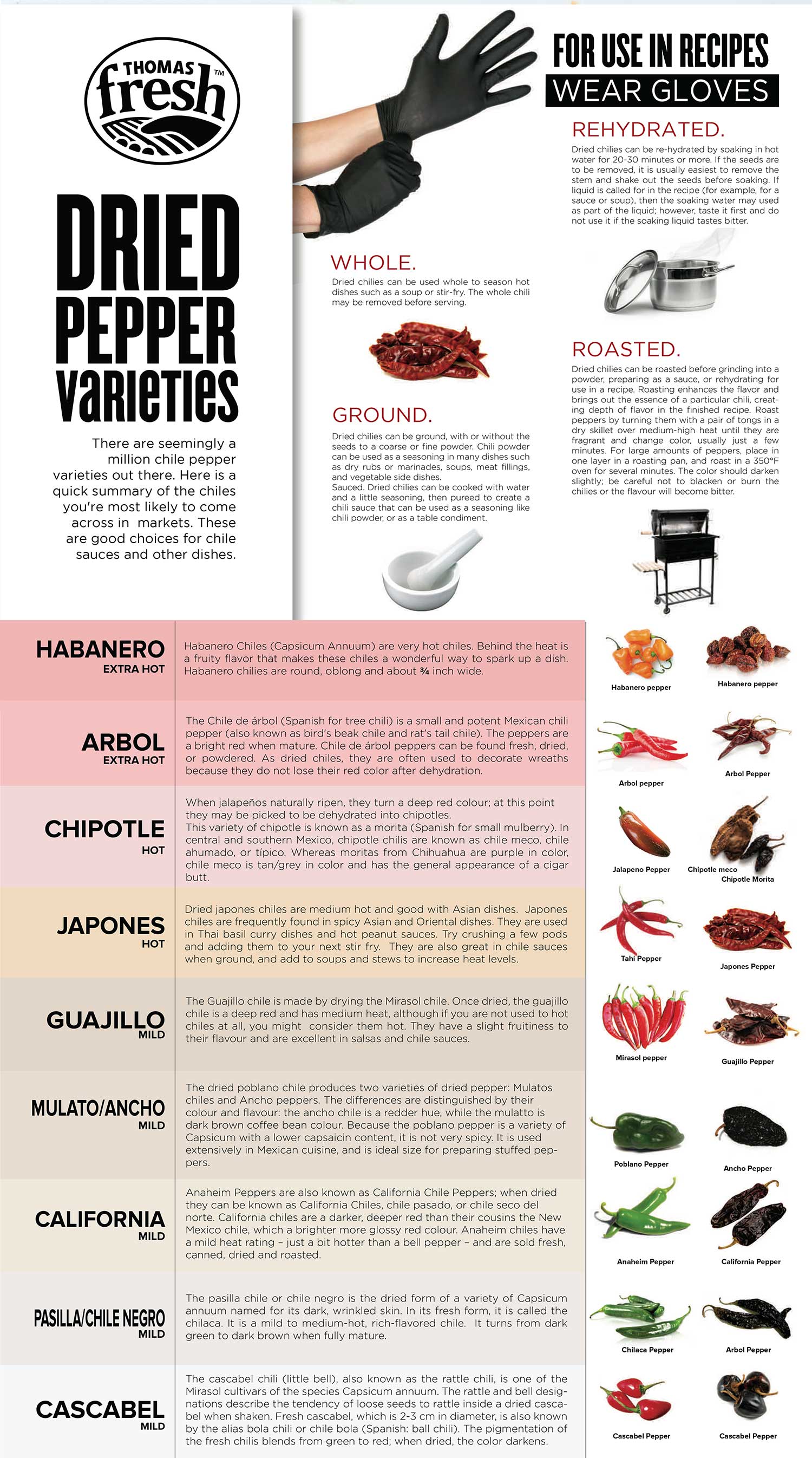[ad_1]
1. Chili peppers may help prevent cancer
Capsaicin inhibits breast cancer cell growth
A team of researchers experimenting with cultivated tumor cells has reported that the growth of breast cancer cells is inhibited by capsaicin, the active ingredient in chili peppers. The experiments were conducted with SUM149PT cell cultures, a model system for an especially aggressive kind of breast cancer known as triple-negative breast cancer.
The researchers detected some common olfactory receptors in the cultivated cells. One of the receptors known as TRPV1, which is usually found in the trigeminal nerve, occurred quite frequently and is activated by capsaicin.
The existence of TRPV1 was found in tumor cells in samples from individuals suffering from breast cancer. The TRPV1 receptor was activated in the cell culture with capsaicin which resulted in the cancer cells dividing more slowly, as well as causing the tumor cells to die in larger numbers.
Capsaicin slows the progression of lung cancer
Results of a study reveal that capsaicin may help in slowing the spread of lung cancer. The majority of deaths related to cancer happen when the cancer metastasizes, which is the process of cancer spreading to distant sites.
Lung cancer usually metastasizes to secondary locations such as the bone, liver, or brain, which makes treatment difficult. The study results suggest that capsaicin may be a potential treatment for metastasis in individuals with lung cancer.
Using 3 lines of cultured human cell lung cancer cells, it was found that capsaicin inhibited the first phase of the metastatic process known as an invasion. It was also discovered that metastatic cancer mice consuming capsaicin had smaller metastatic cancer cell areas in the lung in comparison to mice not receiving the capsaicin treatment.
Capsaicin may inhibit tumors of the gut
A study has revealed that the TRPV1 cell receptor that lines the intestines of mice is activated by the consumption of capsaicin, which triggers a reaction that subsequently reduces colorectal tumor risk.
Mice that were genetically prone to developing gastrointestinal tract tumors were fed capsaicin. The capsaicin treatment reduced tumor burden and the lifespan of the mice was extended by over 30%.
Capsaicin shows potential for inhibiting pancreatic cancer growth
A study suggests that capsaicin prevents or slows pancreatic cancer tumor growth in mice. The study revealed that capsaicin resulted in pancreatic cancer cell death through a process known as apoptosis.
Mice with human pancreatic tumors were fed different amounts of capsaicin for 5 days a week or 3 days a week depending on their weight. Size of tumors and apoptotic protein levels in the tumors were then compared to a control group of mice that were fed only saline.
It was found that the mice consuming capsaicin had increased protein levels linked to apoptosis and substantially smaller tumor sizes in comparison to the control group. Capsaicin-treated tumors were half the size of non-treated tumors.

Image Source – thomasfresh
Want to use our images on your site? Right click on image for embed code
[ad_2]
Source link
